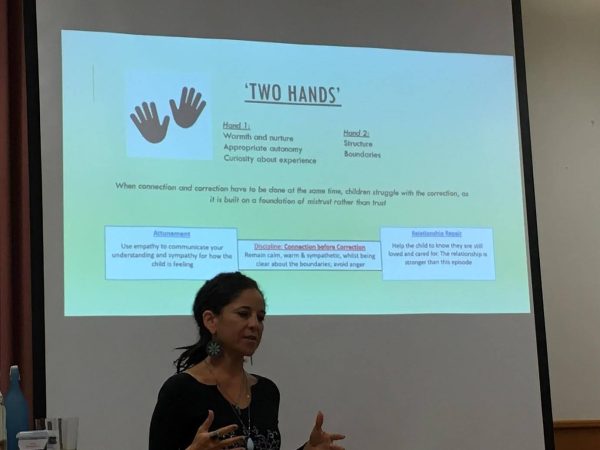Trauma-informed
Community Services
Professional Development and Consultancy
I can provide training to a wide variety of community services to guide them towards working with people in a more trauma-informed way, as the impacts of trauma can be far reaching, affecting the way people of all ages interact with others, including community services. Gaining a better understanding of the people who need to access various services is likely to lead to these services being more effective.
The principals that are included in this training focus on understanding how mistrust develops early in life and can continue to affect relationships throughout a person’s entire life, from childhood to adolescence through to adulthood. This mistrust can make it difficult to build relationships with these clients and can often trigger a defensive reaction from the professionals trying to support them. This training will focus on recognising when a client is stuck in a place of ‘Blocked Trust’ and how to remain in a non-judgemental and empathetic state so as to see beneath the behaviour the client is exhibiting to the adversity they are likely to have experienced which has led to this response. We need to be asking ourselves the question, “What happened to you?” in order to better understand the way they have learned to operate in the world. Often we can be left feeling blamed by these clients for something, yet understanding that ‘Blaming Others’ is a shield they have developed against feelings of shame helps us to stay motivated to continue to try and understand and support these people as best as we can.
This training provides strategies based on the PACE model for working through difficulties with clients in a way that will foster the development of trusting relationships, the foundation upon which this work sits. Alongside this, mindfulness-based techniques are included so that we gain more awareness of our own triggers and automatic responses to situations, including the feelings that arise for us, and how we can simply observe these and continue to provide a trauma-informed service. This training will also focus on the importance of self-care.
Following on from the Professional Development, I can provide private consultations focused on working with individual clients and how to better understand their story and build a trusting relationship with them that will foster better engagement and a more effective service being delivered. Some of the services where such training is likely to have a positive impact include mentoring, social work and healthcare agencies.
Costs and Bookings
Full Day workshop (6-7 hours) = $1500
Half Day workshop (3-4 hours) = $1000
2 hour presentations = $500
Travel costs additional; 20% deposit to be paid at time of booking

Testimonials
“Related very much to the clients we work with.”
“Your facilitation skills were amazing. I learnt so much!”
“I found this PLD very interesting and well delivered.”
“Thanks so much for today. Was super informative and just brilliant!”
Mentoring agencies
A trauma-informed approach will help mentors to develop a deep connection with their clients by learning how to support them in understanding the more vulnerable emotions they are likely to be feeling beneath any behaviours they exhibit. Mentors will learn how to remain open and non-judgemental, responding with attunement and empathy, and avoiding lecturing and problem solving too early. In this way, mentors will start to provide their clients with the skills to understand themselves better and create new narratives about who they are; this is based on the use of the PACE model.
Social work agencies
Social workers are often interacting with people at their most vulnerable times in life and the support they provide can be critical for the wellbeing of their clients. Children in care need help to understand their life story, and the principals of PACE can be used to help with this processing. In particular, these children are often likely to feel that they are to blame for things and they develop a deep sense of shame that starts at toddlerhood and impacts on their behaviour throughout life. It is vital that we start to shift them from this state of shame through compassionate and empathetic understanding of any behavioural challenges that arise by using techniques that will help them to understand themselves better reframe their story. Similarly, adults need to be supported in this way too.
Healthcare agencies
Mental health nurses and other such healthcare professionals would benefit from this training, as it would provide a framework for connecting with clients who can sometimes be difficult to engage with and enhance understanding of the origins of some of the mental health issues workers are faced with, leading to interventions and support that target these underlying needs. I can also provide professional development for other support agencies who want to learn how to engage more effectively with clients who are deemed to be ‘difficult’ by providing a better understanding of how their life experiences are likely to have affected their ability to form relationships and trust others, as well as learning ways of better communicating with these clients.



